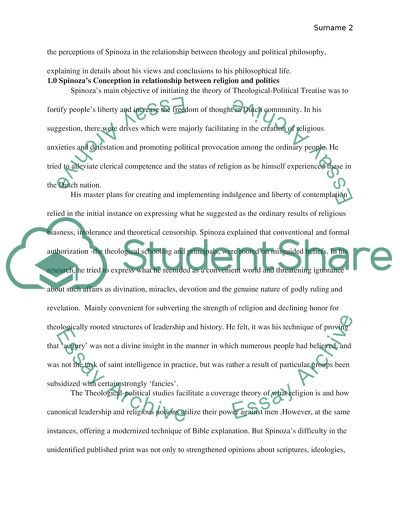Cite this document
(Spinozas Conception of the Correct Relationship between Religion and Politics Essay Example | Topics and Well Written Essays - 2250 words, n.d.)
Spinozas Conception of the Correct Relationship between Religion and Politics Essay Example | Topics and Well Written Essays - 2250 words. https://studentshare.org/philosophy/1853626-spinozas-conception-of-the-correct-relationship-between-religion-and-politics
Spinozas Conception of the Correct Relationship between Religion and Politics Essay Example | Topics and Well Written Essays - 2250 words. https://studentshare.org/philosophy/1853626-spinozas-conception-of-the-correct-relationship-between-religion-and-politics
(Spinozas Conception of the Correct Relationship Between Religion and Politics Essay Example | Topics and Well Written Essays - 2250 Words)
Spinozas Conception of the Correct Relationship Between Religion and Politics Essay Example | Topics and Well Written Essays - 2250 Words. https://studentshare.org/philosophy/1853626-spinozas-conception-of-the-correct-relationship-between-religion-and-politics.
Spinozas Conception of the Correct Relationship Between Religion and Politics Essay Example | Topics and Well Written Essays - 2250 Words. https://studentshare.org/philosophy/1853626-spinozas-conception-of-the-correct-relationship-between-religion-and-politics.
“Spinozas Conception of the Correct Relationship Between Religion and Politics Essay Example | Topics and Well Written Essays - 2250 Words”. https://studentshare.org/philosophy/1853626-spinozas-conception-of-the-correct-relationship-between-religion-and-politics.


